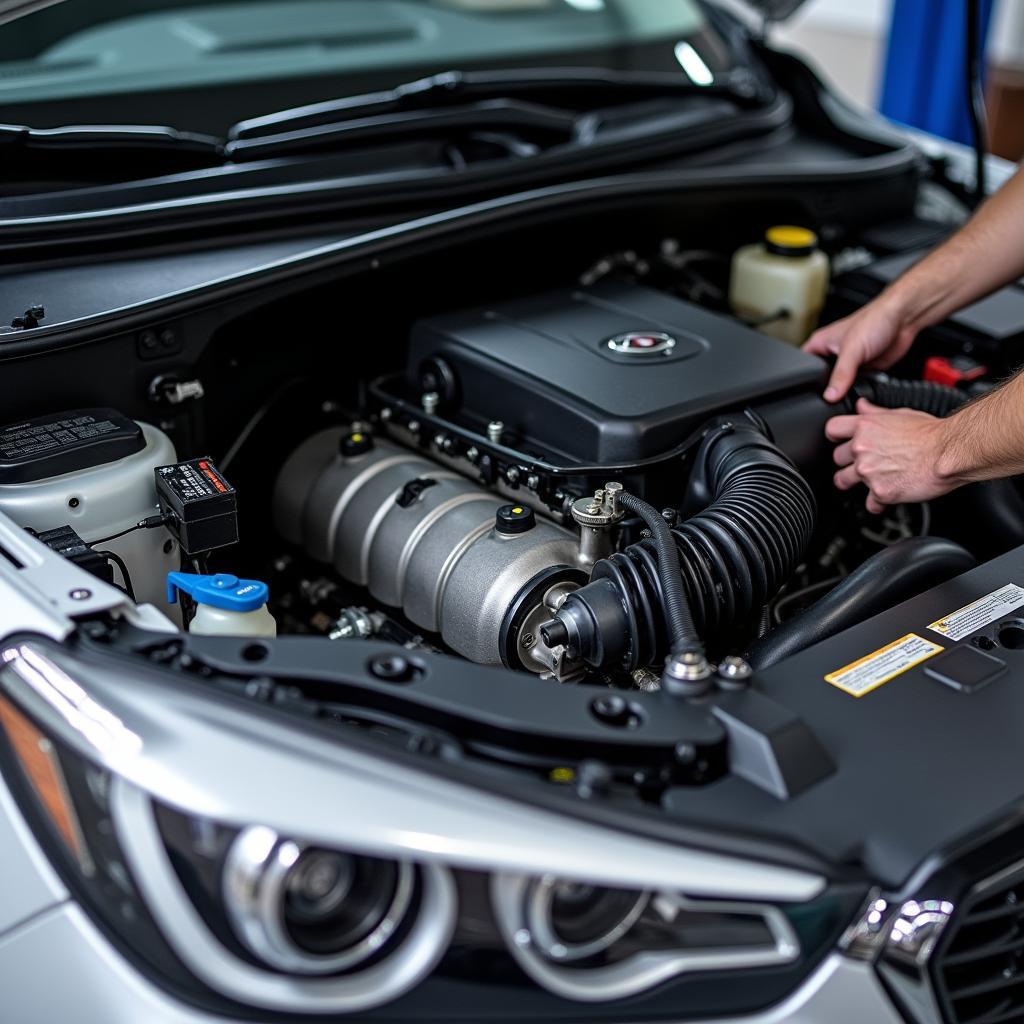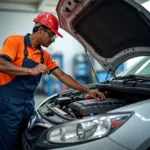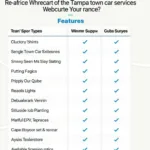Korean Car Service is essential for ensuring the longevity, reliability, and performance of your vehicle. From routine maintenance like oil changes and tire rotations to more complex repairs, finding a trustworthy and knowledgeable Korean car specialist is crucial. This comprehensive guide explores everything you need to know about Korean car service, empowering you to make informed decisions and keep your Hyundai, Kia, or Genesis running smoothly.
Understanding the Nuances of Korean Car Service
While general mechanics can service Korean cars, specializing in Korean makes provides distinct advantages. These specialists possess in-depth knowledge of the specific engineering, common issues, and recommended maintenance procedures for Hyundai, Kia, and Genesis vehicles. This expertise allows for quicker diagnoses, more effective repairs, and potentially lower costs in the long run.
Why Choose a Specialized Korean Car Service?
Opting for a specialized Korean car service offers several benefits:
- Expertise: Technicians trained specifically on Korean vehicles understand the intricacies of their engines, transmissions, and electrical systems.
- Specialized Tools and Equipment: Korean car specialists often invest in diagnostic tools and equipment designed specifically for these makes, enabling more accurate and efficient troubleshooting.
- Genuine Parts: Reputable Korean car service centers prioritize using genuine OEM (Original Equipment Manufacturer) parts, ensuring optimal performance and compatibility.
- Cost Savings: While some may assume specialized service is more expensive, the accurate diagnoses and efficient repairs can often lead to lower overall costs compared to general mechanics who may require more time to troubleshoot.
Finding the Right Korean Car Service Center
Locating a reliable Korean car service center can seem daunting, but by following a few key steps, you can find a trusted partner for your vehicle’s maintenance.
- Online Reviews: Check online platforms like Google, Yelp, and Carfax for reviews from other Korean car owners. Look for consistent positive feedback regarding expertise, customer service, and pricing.
- Referrals: Ask friends, family, or colleagues who own Korean cars for their recommendations. Personal experiences can provide valuable insights.
- Certifications and Affiliations: Look for certifications like ASE (Automotive Service Excellence) and affiliations with organizations like the Better Business Bureau, indicating a commitment to quality and ethical practices.
- Transparency and Communication: Choose a service center that communicates clearly about the required repairs, associated costs, and estimated timelines.
Key Questions to Ask Your Potential Korean Car Service Provider
Before entrusting your car to a service center, consider asking the following questions:
- “What experience do your technicians have with Korean cars, specifically my make and model?”
- “Do you use genuine OEM parts?”
- “Can you provide a detailed estimate before starting any work?”
- “What is your warranty policy on repairs?”
Common Korean Car Service Needs
Understanding the typical maintenance and repair needs for Korean cars can help you anticipate potential issues and plan accordingly.
- Regular Maintenance: This includes oil changes, tire rotations, brake inspections, and fluid top-offs, essential for preventing major problems.
- Timing Belt Replacement: Korean cars often require timing belt replacements at specific intervals, crucial for preventing catastrophic engine damage.
- Transmission Service: Regular transmission fluid changes and inspections are vital for maintaining smooth shifting and preventing costly transmission failures.
- Electrical System Issues: Korean cars can sometimes experience electrical problems, requiring specialized diagnostic tools and expertise to resolve.
Keeping Your Korean Car in Top Condition
Beyond professional service, you can also take steps to maintain your Korean car’s performance and longevity.
- Follow the Recommended Maintenance Schedule: Consult your owner’s manual for the recommended service intervals for your specific make and model.
- Address Warning Lights Promptly: Ignoring warning lights can lead to more significant and expensive problems down the line.
- Use Quality Fuel and Fluids: Using the recommended fuel and fluids can contribute to optimal engine performance and longevity.
- Regularly Inspect Tires and Brakes: Checking tire pressure and brake pad wear can help prevent accidents and maintain safety.
Conclusion
Proper Korean car service is paramount for preserving the performance, reliability, and value of your vehicle. By choosing a specialized service center, addressing issues promptly, and following the recommended maintenance schedule, you can ensure your Korean car continues to provide reliable transportation for years to come. Investing in quality Korean car service is an investment in your peace of mind.
FAQ
- How often should I get my Korean car serviced? Consult your owner’s manual for the recommended maintenance schedule.
- What are the signs I need Korean car service? Unusual noises, warning lights, performance issues, or fluid leaks are all signs you should seek professional service.
- How can I find a reputable Korean car service center? Check online reviews, ask for referrals, and look for certifications and affiliations.
- Is it more expensive to service a Korean car? Not necessarily. Specialized service can often lead to more accurate diagnoses and efficient repairs, potentially saving you money in the long run.
- What are common problems with Korean cars? While generally reliable, some Korean cars can experience issues with electrical systems, transmissions, or specific engine components.
- Can any mechanic service my Korean car? While general mechanics can work on Korean cars, specialized technicians possess in-depth knowledge and often have access to specialized tools.
- How can I prevent major repairs on my Korean car? Following the recommended maintenance schedule, addressing warning lights promptly, and using quality fluids can help prevent major repairs.
Common Korean Car Service Scenarios
- Check Engine Light: This indicates a potential problem with the engine or emissions system and requires diagnostic testing.
- Rough Idling or Stalling: This could be caused by various issues, including spark plugs, fuel injectors, or sensors.
- Transmission Slipping or Jerking: This suggests a problem with the transmission and requires immediate attention.
- Brake Squealing or Grinding: This indicates worn brake pads or other brake system issues.
Further Reading on CarServiceRemote
- [Link to article about choosing the right car service provider]
- [Link to article about understanding car warranties]
- [Link to article about common car problems and solutions]
Need expert Korean car service assistance? Contact us via WhatsApp: +1(641)206-8880, or Email: [email protected]. Our 24/7 customer service team is ready to help.


